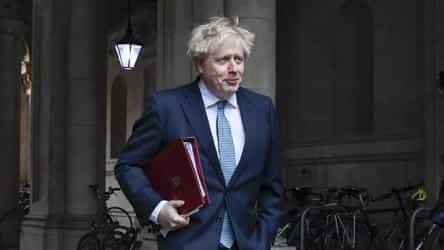Key points:
•The UK is also set to become the only country which has been accorded this honour six times.
•UK prime minister Boris Johnson will be the sixth British leader to be chief guest at India’s Republic Day celebrations, and the honour was last extended to former prime minister John Major in 1993.
The UK is also set to become the only country which has been accorded this honour six times. So far, the heads of state or government of only France and Britain have been the chief guests at the celebrations on five occasions.
UK prime minister Boris Johnson will be the sixth British leader to be chief guest at India’s Republic Day celebrations, and the honour was last extended to former prime minister John Major in 1993.
Members of the British royal family were the chief guests in the 1950s and 1960s – Prince Philip in 1959, Queen Elizabeth in 1961 and Lord Louis Mountbatten in 1964. At the time, Mountbatten was the UK’s chief of defence staff.
After a gap of almost three decades, prime minister John Major was the next British leader to be chief guest at the Republic Day celebrations in 1993.
The chief guest for the Republic Day celebrations is chosen in keeping with India’s strategic, diplomatic and economic interests, as well as New Delhi’s
relations with the concerned country.
The decision on the chief guest is usually locked in by late November, though the process this year was affected by the disruption caused by the Covid-19 pandemic. The head of state or government of India usually intends to announce the invite in advance to get their concurrence before a formal invitation is extended through diplomatic channels.
Visiting UK foreign secretary Dominic Raab confirmed, during a joint media interaction with his Indian counterpart S Jaishankar, on Tuesday that prime minister Johnson had accepted the Indian government’s invitation to be chief guest at the Republic Day celebrations.

